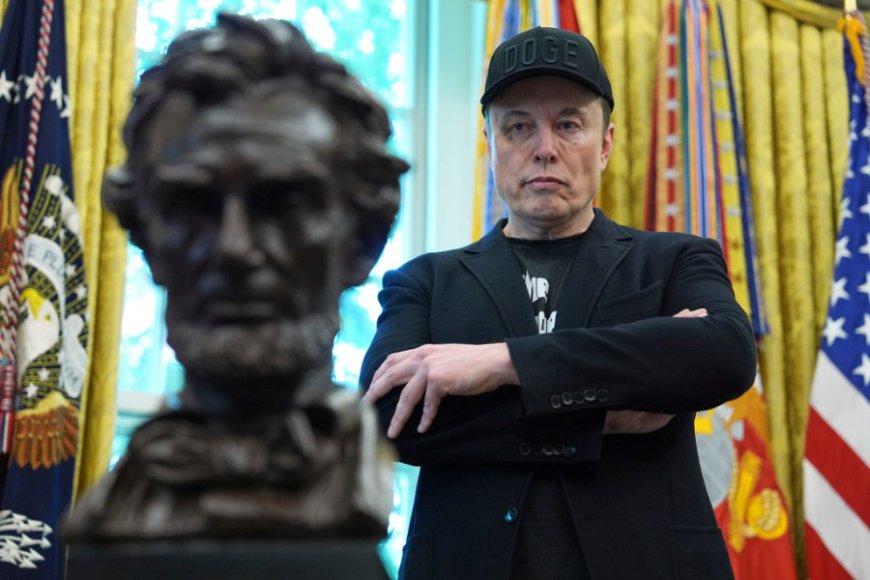Elon Musk is no Ross Perot
Elon Musk's "America Party" is a far cry from Ross Perot's third-party bid in 1992, as Musk's reliance on government funding, lack of policy substance, and social media antics make him an unlikely candidate for political success.

The comparisons flood in. Elon Musk launches his "America Party," and every pundit reaches for the same tired parallel. Another Ross Perot. Another billionaire maverick.
Another third-party earthquake waiting to happen.
Wrong. Completely wrong.
Musk represents everything Perot opposed. Where Perot stood for fiscal discipline, Musk embodies corporate welfare. Where Perot championed American manufacturing, Musk built his fortune on government funding and Chinese batteries. Where Perot offered genuine outsider credentials, Musk carries the stench of establishment cronyism.
The surface similarities deceive. Both men possess massive wealth. Both nurse grudges against sitting presidents. Both promise to shake up the system. The differences run deeper than the Delaware River.
Perot emerged from genuine business success. He built Electronic Data Systems from nothing. He created real value, real jobs, real innovation. His wealth came from solving actual problems, not gaming government handouts.
Musk built his empire on taxpayer subsidies. Tesla survived on government credits. SpaceX feeds off NASA contracts. His companies consume public money like a Vegas slot machine consumes quarters. He represents the opposite of Perot's self-made independence.
The timing exposes another crucial difference. Perot entered politics during America's economic malaise. Recession gripped the nation. Deficits soared. Voters craved fiscal responsibility. His message matched the moment.
Musk launches his party during economic recovery. Stock markets reach record highs. Unemployment stays low. His fiscal responsibility message lands like a lead balloon in a helium factory.
More importantly, Perot possessed something Musk lacks entirely: credibility on his core issue. When Perot talked about budget deficits, people listened. He had never taken government handouts. He understood business efficiency. He could legitimately claim outsider status.
Musk talking about government waste sounds like a meth addict lecturing about sobriety. His companies gorged themselves on federal subsidies for decades. He personally benefited from programs he now claims to oppose. The hypocrisy stinks from orbit.
The political landscape has also shifted dramatically since 1992. Perot faced two establishment candidates, the president, George H.W. Bush and his Democratic challenger Bill Clinton. Voters hungered for alternatives. The third-party lane stretched wide and inviting.
Today's political map offers no such opening. Trump already occupies the anti-establishment space. He owns the outsider brand, despite being president. Musk cannot out-populist the master populist.
The media environment has transformed beyond recognition. In 1992, Perot could command television attention through sheer novelty. Cable news was young. Social media did not exist. A billionaire buying airtime could reach millions of uncommitted voters.
Now everyone screams into the digital void. Attention spans shrink by the nanosecond. Musk's X antics already overexpose him. His brand suffers from overexposure, not invisibility.
Perot also offered policy substance beneath the theatrics. His deficit charts bored audiences, yet they conveyed serious proposals. He understood complex economic issues. His solutions made mathematical sense, even if they were politically unrealistic.
Musk offers conspiracy theories and vanity projects. His policy knowledge barely scratches the surface. He confuses tweeting with governing. He mistakes social media engagement for political support.
The coalition mathematics doom Musk from the start. Perot drew votes from both parties roughly equally. His appeal crossed traditional lines. Fiscal conservatives and government skeptics existed in both camps.
Musk's potential supporters cluster overwhelmingly on the right. He cannot build a truly bipartisan coalition. Democratic voters despise him. His only hope lies in cannibalizing Republican support.
This creates a fatal strategic problem. Every vote Musk gains likely comes from Trump's column. He cannot expand the anti-establishment coalition because he lacks cross-party appeal. He can only divide it.
The structural barriers have hardened since Perot's time. Ballot access requirements have increased. Campaign finance laws favor established parties. The debate commission now excludes third parties more effectively.
Perot qualified for the presidential debates in 1992. Those appearances legitimized his candidacy. Current rules make such inclusion nearly impossible. Without debate access, third parties wither in obscurity.
The fundamental character differences matter most. Perot, for all his quirks, projected competence. He ran a disciplined campaign. He stayed on message. He treated politics seriously.
Musk treats everything as a game. He changes positions hourly. He picks fights on social media. He lacks the temperament for sustained political combat.
Perot understood American voters. He spoke their language. He shared their concerns. He offered real solutions to real problems.
Musk lives in a Silicon Valley bubble. He mistakes X for reality. He confuses online engagement with electoral support. He fundamentally misunderstands the American electorate.
The comparison insults Perot's legacy. He may have been eccentric, demanding and difficult, but he changed American politics permanently. He forced both parties to address fiscal responsibility. He proved that third parties could compete.
Musk offers nothing comparable — no serious policy agenda, no coherent vision, no sustainable coalition. His proposed new party is just another billionaire's vanity project disguised as political reform.
The America Party will follow the same trajectory as Musk's other attention-grabbing schemes — media frenzy, gradual reality, ultimate failure.
John Mac Ghlionn is a writer and researcher who explores culture, society and the impact of technology on daily life.
What's Your Reaction?























